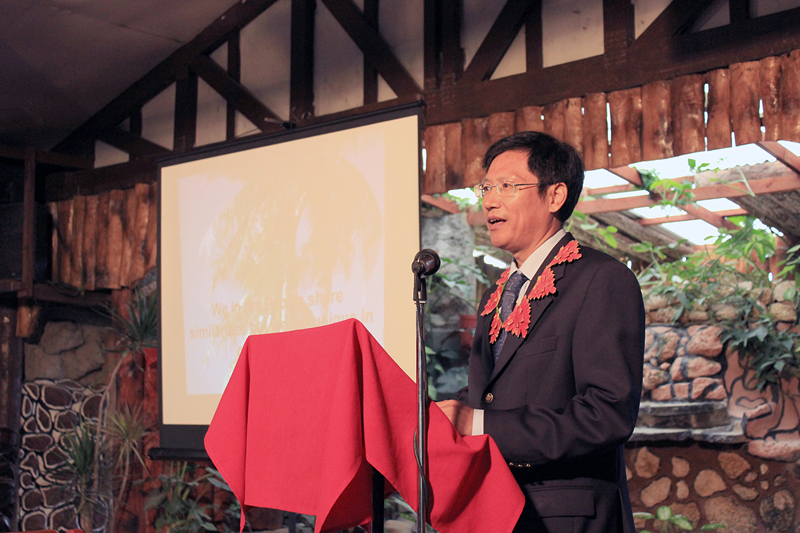Leaders of China’s Guangzhou Pelagic Fishery company have been warned Pacific tuna stocks have been depleted by illegal fishing.
Deputy Chair of the Pacific Media Association and editor of Taimi ‘o Tonga Kalafi Moala said the Pacific’s Exclusive Economic Zone had been violated by foreign fishing fleets.
Moala told the Chinese during a recent meeting with Pacific journalists in Guangzhou that Pacific countries were trying to develop legislation to stop illegal fishing activities and help make tuna fishing sustainable.
“We are ocean people and all the product we have are ocean goods,” Moala said.
“If it is done wrongly and not sustainably we suffer because we live in that area.”
According to a report by the Pew Charitable Trusts in May this year, the total catch in the Pacific Ocean was worth US$22 billion in 2014.
The report said tuna was a vital source of revenue to fishing communities, particularly in the Pacific Islands.
The report said tuna stocks were severely depleted.

Moala said the information the Chinese provided during the meeting was promising and favourable to the Pacific countries in their attempts to stop illegal fishing.
Guangzhou Pelagic Fishery
The Guangzhou Pelagic Fishery Company has an annual turnover of RMB10 billion and sells 210,000 tonnes of fish each year. It is a state-owned enterprise under the Guangzhou Aquatic Group Co. Ltd.
Founded in July 1989 it is the only major enterprise in Guanzhou to attain the qualification of the Ocean and Pelagic Fishery production approved by the National Ministry of Aquaculture.
It engages in a wide range of business including ocean fishing, aquatic products breeding, processing, acquisition and sale.
Company spokesman Tan Yi Guan said they abided strictly by the local laws and regulation of the local areas and waters.
The company operates 10 long line fishing boats optimised for tuna in Fiji and Kiribati.
They said they monitored their fleet 24 hour a day and required daily reports.
The Chinese said they had fished in Fijian waters for more than 10 years.
“We have a very good relationship with our partner in Fiji,” Tan said.
He said captains of their fishing vessels were expected to follow the company’s strict rules and follow the law.
The company claimed they represented “the spirit of co-operation” in China.
The Company had worked on ocean fishing projects in West Africa, Colombia, Indonesia, the Maldives, Fiji and Kiribati.
The Chinese told the meeting they believed in keeping ocean fishing sustainable. They planned to extend their operation in Fiji to local processing companies and fishing factories.
Apart from the Chinese domestic market, most of the company’s tuna catch is sold in the United States, Japan, Australia, New Zealand and the European Union.
About Guangzhou
Guangzhou is the capital of Guangdong and is known as the South Gate of China. It is located in the north Pearl River Delta adjacent to Hong Kong and Macao. It is the communication and transportation hub of South China and has a population of 16 million.
In 2015 the city’s GDP reached US$291.3 billion. It is twinned with 59 cities in 43 countries and hosts consulates from 53 countries.
Dongguan, the sister city of Ha’apai in the Kingdom of Tonga, is one of the cities of Guangdong province.
The main points
- Leaders of China’s Guangzhou Pelagic Fishery company have been warned Pacific tuna stocks have been depleted by illegal fishing..
- Deputy Chair of the Pacific Media Association and editor of Taimi ‘o Tonga Kalafi Moala said the Pacific’s Exclusive Economic Zone had been violated by foreign fishing fleets.
- Moala told the Chinese during a recent meeting with Pacific journalists in Guangzhou that Pacific countries were trying to develop legislation to stop illegal fishing activities and help make tuna fishing sustainable.
- According to a report by the Pew Charitable Trusts in May this year, the total catch in the Pacific Ocean was worth US$22 billion in 2014.
For more information
Overfishing puts $42bn tuna industry at risk of collapse







